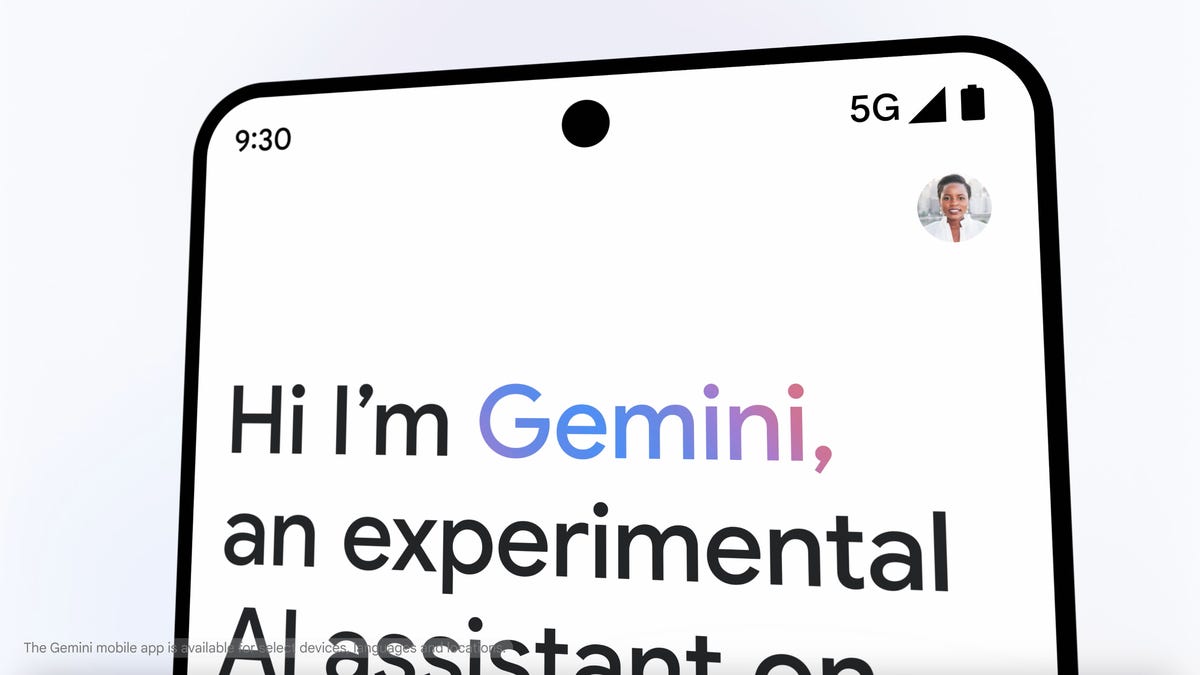From Bard to Gemini: Google's ChatGPT Competitor Gets a New Name and a New App
Trouble making sense of the name change? Here's what you need to know.

The name evoked Shakespeare himself, but apparently not enough of our AI future. Google's Bard AI chatbot is now Gemini, matching the AI model the company rolled out in December.
Google's answer to ChatGPT debuted nearly a year ago to mixed reviews, but has since seen multiple updates including, most recently, the ability to generate images from text.
The name change is intended to help people understand they're engaging with the Gemini AI model via the chatbot, said Sissie Hsiao, vice president and general manager of Gemini experiences and Google Assistant.
Bard won't change much, despite the new name, logo, apps and gemini.google.com website. But now there's also a premium, paid Gemini version called Ultra, too. Gemini might misidentify itself as Bard, however, as it struggles with self-awareness during the transition period, Hsiao said.
Google's changes aren't happening in a vacuum. ChatGPT maker OpenAI has released its GPT-4 Turbo large language model and now allows anyone to create custom AI apps for its app store. Meanwhile, Microsoft announced that it intends to add a dedicated key on Windows 11 laptops and PCs to launch its AI tool, Copilot. Less well known but scoring venture funding and cachet in tech circles is the startup Perplexity, a search engine revved up with AI. These are just a few reasons why the generative AI market is projected to reach $1.3 trillion by 2032.
As generative AI shifts from startling tech breakthrough to mainstream tech, these players are all positioning themselves to be the one that captures the most hearts, minds and dollars.
RIP, Google Assistant
Along with the name change, Google has two new Gemini apps for Android and iOS, which are also available in the US as of Thursday. Next week, they will roll out in Asia Pacific in English, as well as in Japanese and Korean, "with more countries and languages to come soon."
Gemini will become the primary assistant on Android phones for people who download the app and opt in. This signals the beginning of the end for Google Assistant, at least on mobile.
Hsiao declined to comment on Gemini's presence elsewhere, but said that Google Assistant is still "present on lots of devices that are not mobile." That's because Gemini is "an opt-in experience to start [and] a new type of assistant."
You can still trigger Gemini with the Google Assistant wake word, "Hey, Google."
"I think it's a super important first step towards building a true AI assistant," Hsiao said. It's "conversational, it's multimodal and it's more helpful than ever before."
Multimodal means users can prompt the chatbot with audio, text and images. So, for example, users can share a photo of a flat tire to ask for help or a photo of a pet and ask for a caption for social media.
Gemini also lets you continue chatbot conversations across devices, sort of like ads that follow you from one device to another.
But unlike Google Assistant, which offers access to a variety of answers, Gemini is a large language model. It's an AI trained on books, news stories and similar content so it can learn about words and how they relate to one another to ultimately generate its own output text. While LLMs are improving, they're still subject to hallucinations, which means they may generate answers that are inaccurate or make no sense. They are also sometimes gullible and can provide different answers to the same query.
A Google spokesman pointed to Gemini's double-check feature, which he said will help people verify responses with content on the web.
Introducing Google One AI Premium
Google also announced Gemini Advanced, a new "experience" that provides access to Ultra 1.0. Google described Ultra 1.0 as "our largest and most capable state-of-the-art AI model." That's thanks in part to the ability to perform more complex tasks like coding, reasoning and following "nuanced" instructions.
Gemini Advanced is available through the Google One subscription service, which added a Google One AI Premium plan for $20 a month on Thursday.
Ultra 1.0 allows you to make longer queries and it better understands these questions in the context of previous queries. You can use it for advanced coding, content ideas for digital creations or a personalized tutor.
It's available in 150 countries and territories in English as of Thursday and will expand over time.
"This is the beginning and we will continue to improve Gemini Advanced's capabilities," Hsiao said. "We're going to add new and exclusive features, for example expanded multimodal capabilities, more interactive coding features, deeper data analysis capabilities and much more."
Google is offering a free two-month trial to start.
Duet is over
Finally, Google's Duet AI tools are also adopting the Gemini name and becoming Gemini for Google Workspace and Google Cloud.
Google One AI Premium plan subscribers will soon be able to use Gemini in Gmail, Docs, Sheets, Slides and Meet.
"Even more people can use these tools to help them write, visualize, organize and so much more," said Kristina Behr, vice president of product management, collaboration apps and Workspace. "Gemini in Gmail, Docs and more will act as your AI collaborative partner, allowing you to create, synthesize information, communicate, get more things done right from within the tools you're already using."
That means potentially tapping into information in multiple Google products like emails and Sheets to make, say, assigning a snack schedule for your kid's soccer team. (Behr also reminded us every customer has control over their data.)
She teased "exciting news to share in the coming weeks about Gemini and in Google Cloud," but didn't elaborate.

